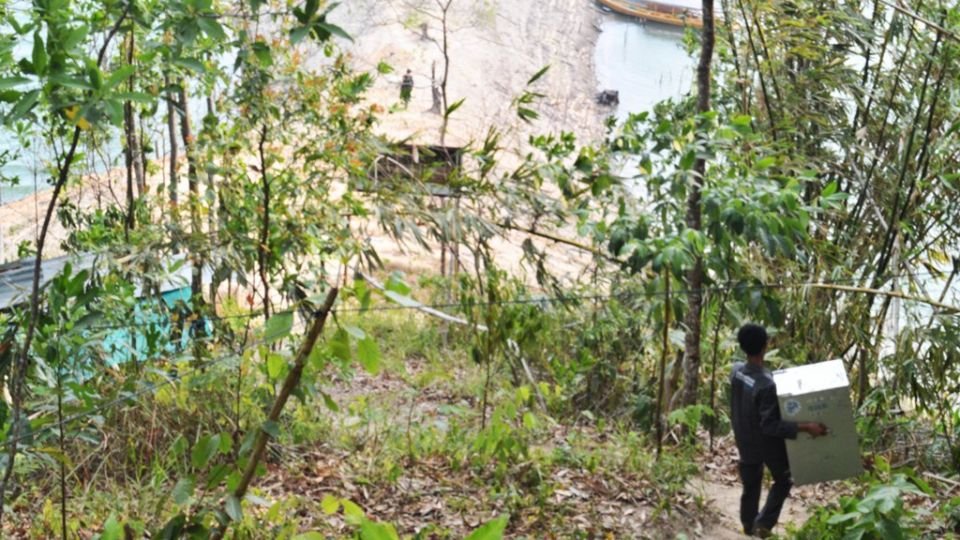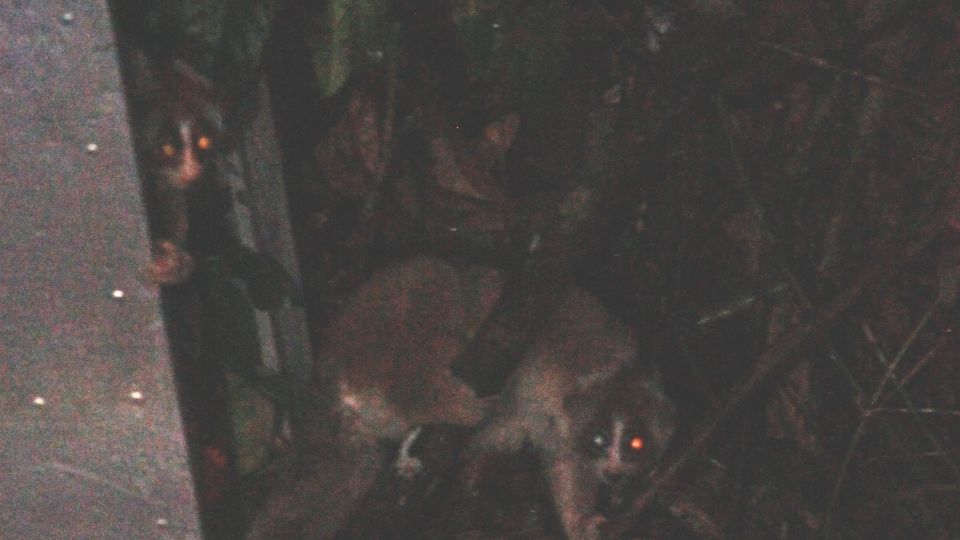
On 15 October IAR’s team in Indonesia translocated ten Sumatran slow lorises (Nycticebus coucang) to a protected forest in Batutegi in Lampung Province, Sumatra. The lorises were originally confiscated by the Natural Resources Conservation Agency in Serang, Banten Province, West Java in November 2013. The group consisted of six females and four males. They were named Mix, Lina, Binok, Gisel, Kabut, Raffi, Indo. Alex, Usum and Piala. Since 2013 the lorises have been undergoing regular medical checks and rehabilitation to restore their wild behaviour before being returned to their natural habitat.
“The results of their medical check-ups confirm that they are in good condition, free from diseases and with good bone density,” said Wendi Prameswari, IAR’s Coordinator of Animal Management. On 14 October, before leaving for the translocation site, the team did a final check on the lorises’ condition and also on their microchips. As well as having a microchip implanted, the lorises are fitted with a radio collar to make it easier for the monitoring team to locate them.
The team travelled by night from IAR’s primate rehabilitation centre in Ciapus, Bogor to the protected forest area in Batutegi.

The lorises were transported in special cages with some natural vegetation inside as bedding to make them more comfortable. On arrival at Batutegi the team crossed the river by boat in order to reach the habituation cages in Talang Randai and Talang Ajir island.
Six lorises were released into the Talang Randai and four into the Talang Ajir habituation cage. They left the transportation cages slowly and cautiously. In the Talang Ajir habituation cage, Raffi took the lead while Gisel peered nervously out from the cage, watching as Raffi ventured up the nearest tree.

Then Kabut followed quickly and climbed a liana tree while Binok still hung back shyly in the transport box with his head peeping out. Finally, Binok plucked up the courage to follow Kabut and also climbed high up into the tree. “Every night the team will be monitoring the behaviour of the lorises in the habituation cages. When they are all seen to have adapted well to their new natural environment and to be behaving like wild lorises, then we will be confident that they can fend for themselves and we will release the lorises into the forest,” said Coordinator of Survey Release Monitoring, Muhidin.
IAR Indonesia Programme Director Karmele Llano Sanchez praised the team for their effort in aiding these slow lorises. ”We are giving them another chance, otherwise they would have been in the markets and at this point they could be dead or living in horrible conditions”, she added.

